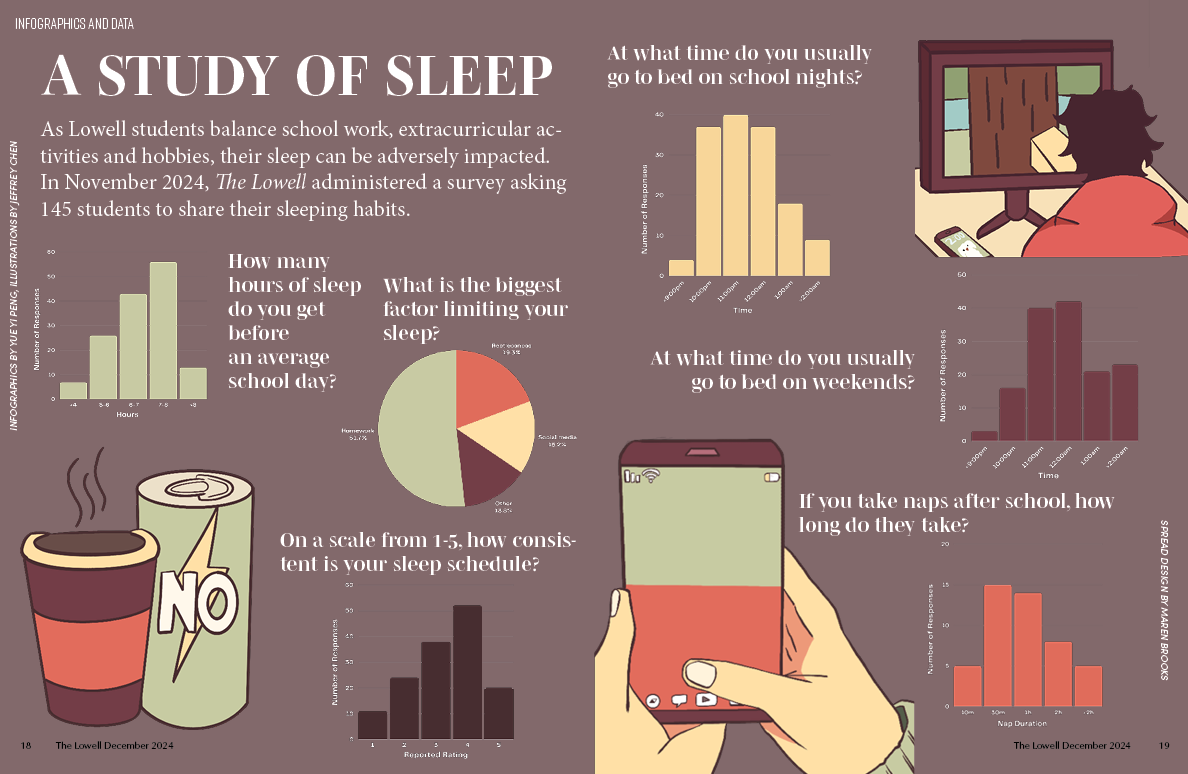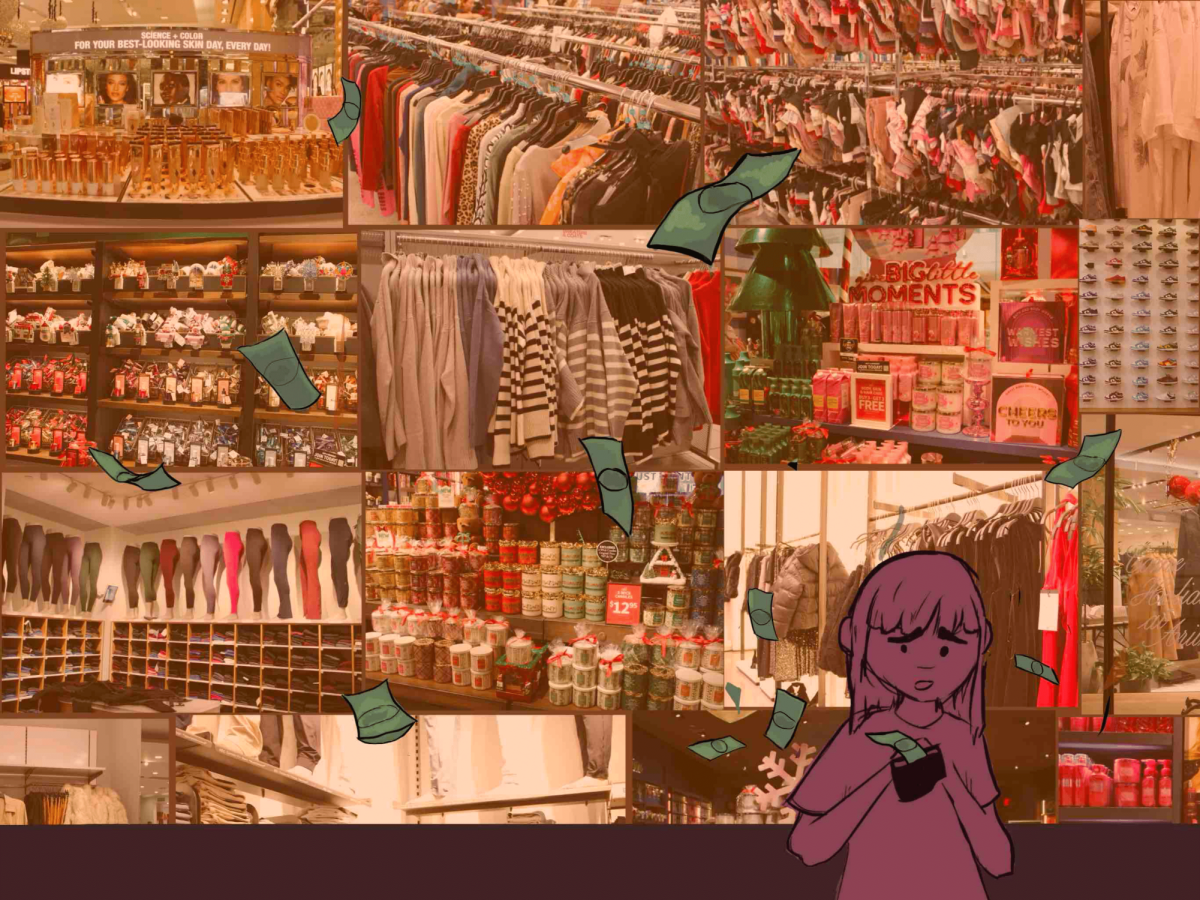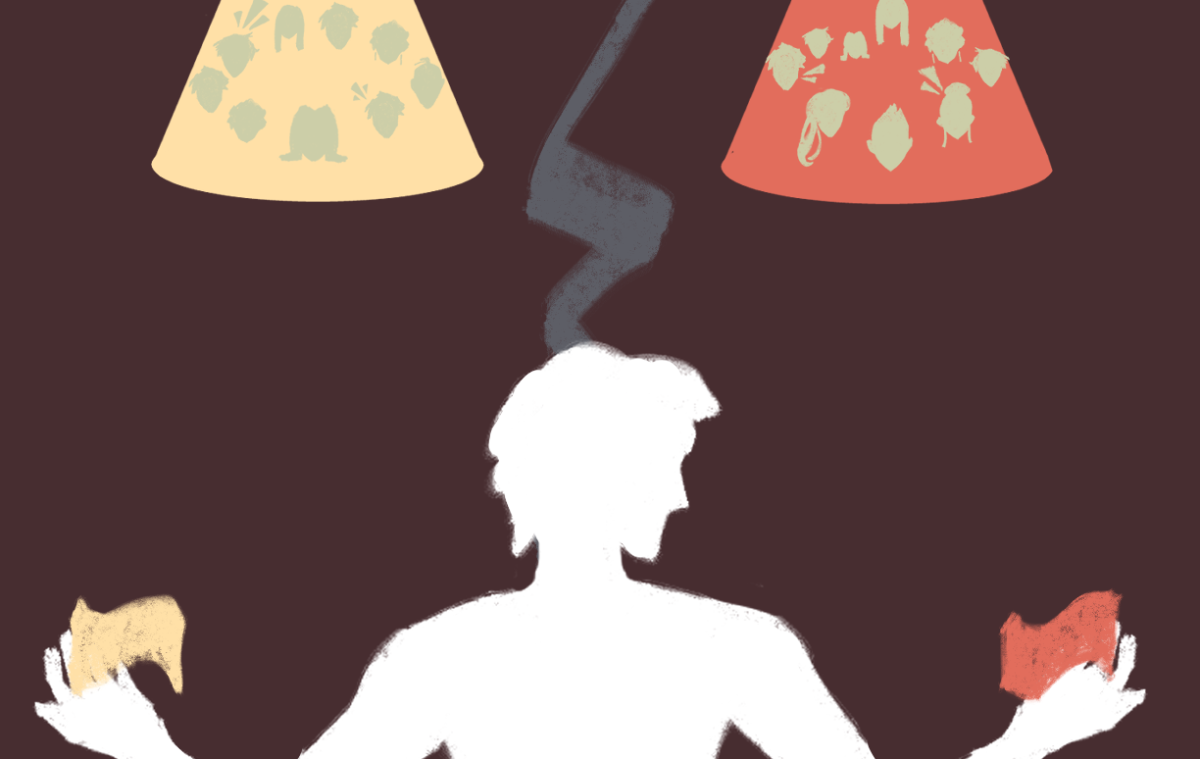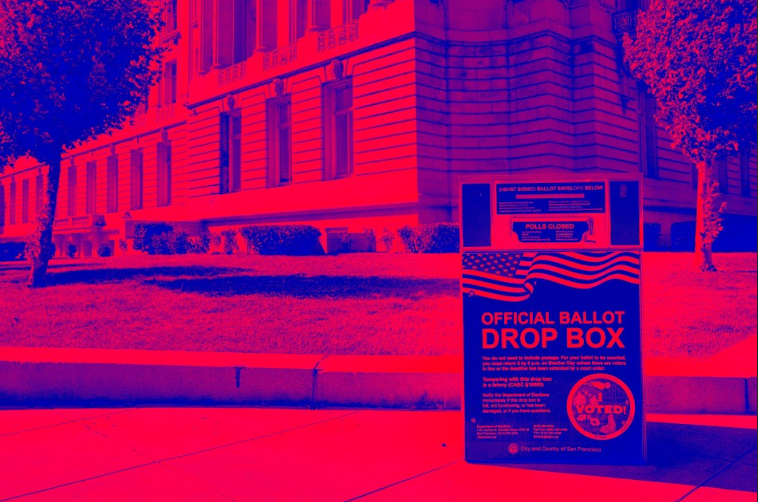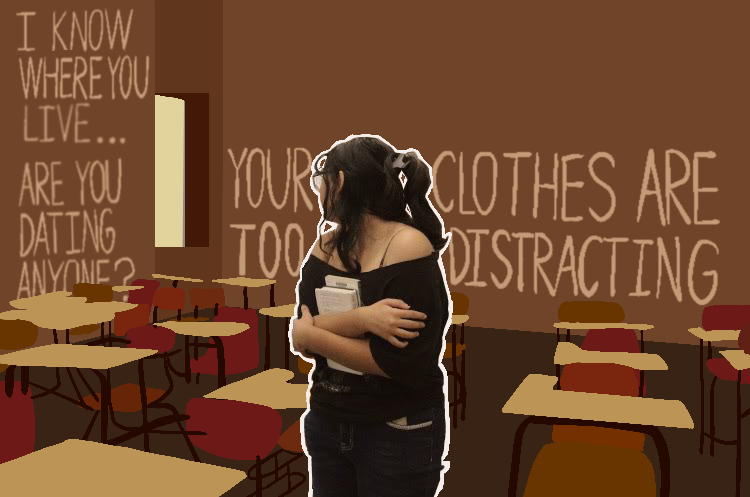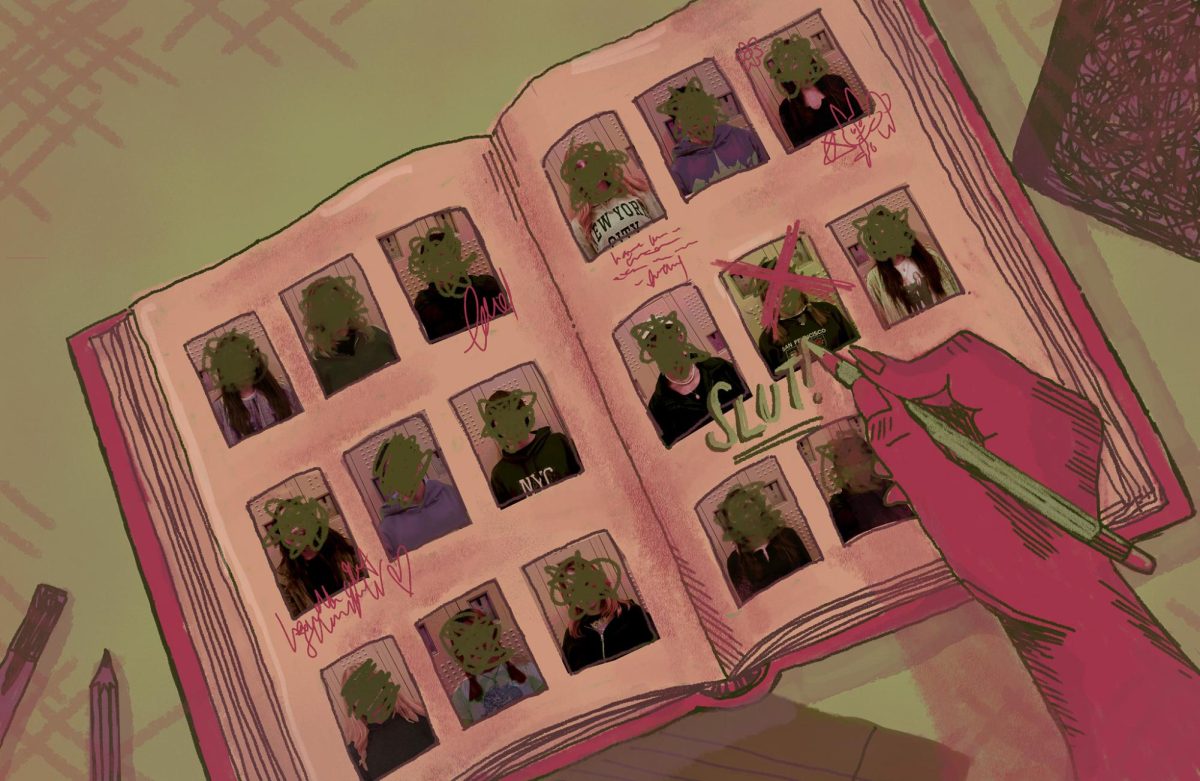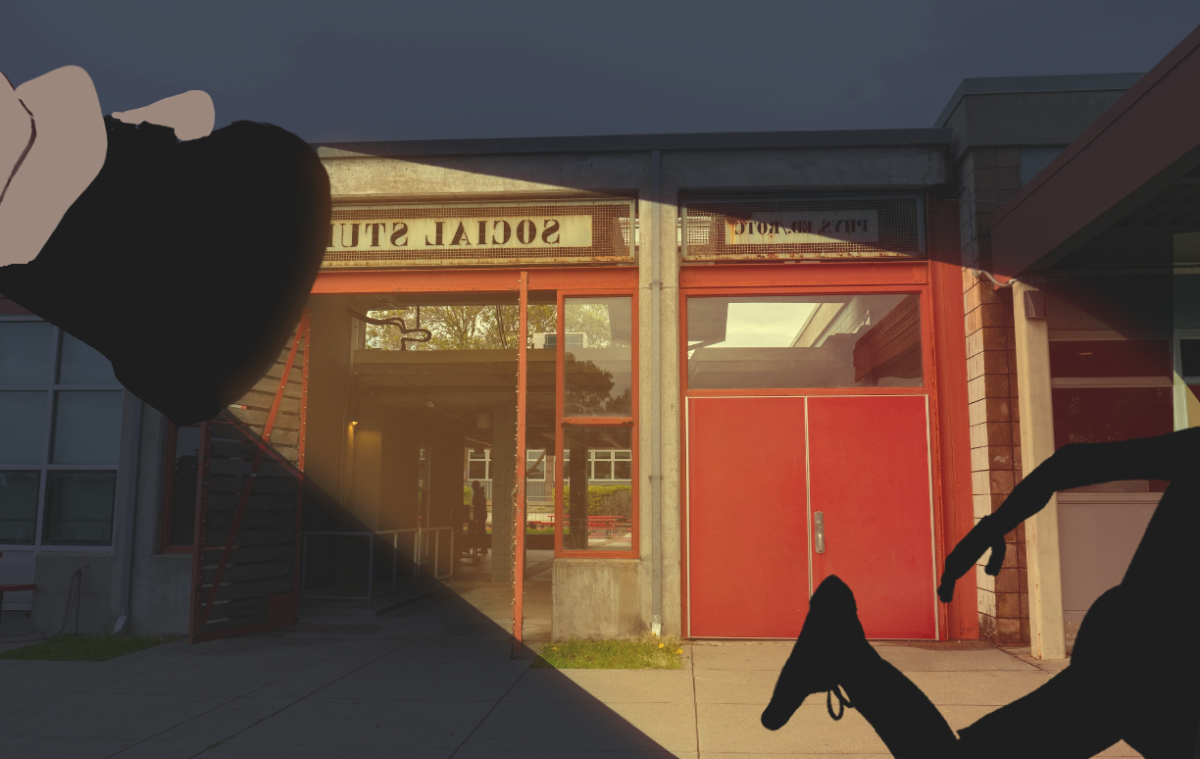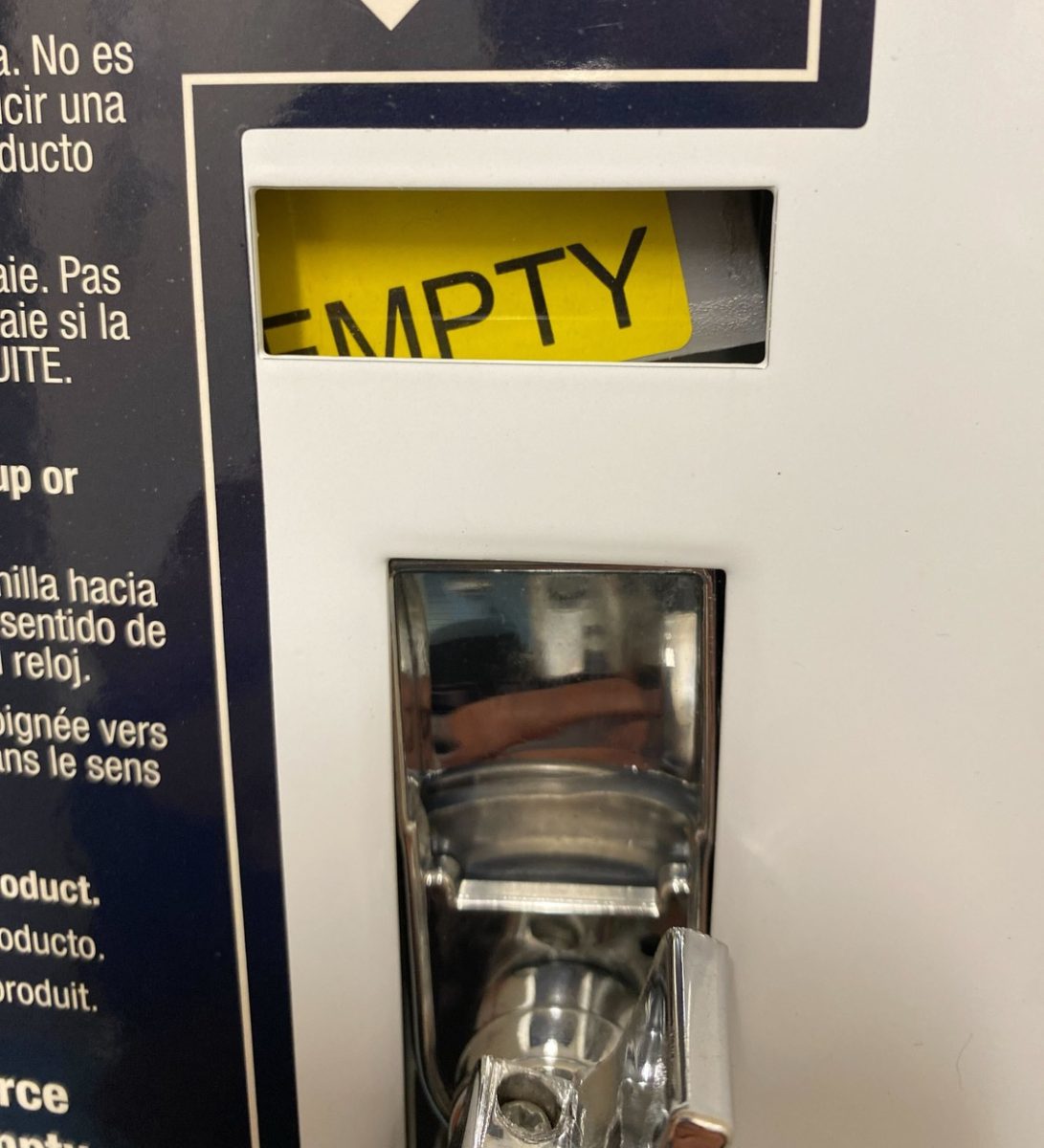By Noreen Shaikh and Adrian Hung
Originally published on March 24, 2016
Have your parents ever discouraged you from a career path because it was too low-paying or unstable? Many young people who would love to pursue an art such as singing, painting or writing end up choosing different careers because they fear that the job will not ensure their financial security. However, reporters Adrian Hung and Noreen Shaikh caught up with five Lowell alumni who decided that a career in journalism was a challenge they weren’t afraid of — financially or otherwise. Instead, they took the lessons they learned in journalism at Lowell and applied them to the different media platforms they work on now.
News Writer for CBS Reminisces About Internships in College
Glennis Markison: 2009

What made you want to join journ at Lowell?
I grew up in a family that always shared stories during dinner time and I wanted to be able to tell those stories in the paper and have an audience. I was curious about learning how to write in a newspaper platform. I was excited about how you frame a story in print. It is interesting to know how many words to use or what’s appropriate for news stories versus op-ed. I did not know if I could stick to the facts with news because I was so used to telling a colorful story.
How was your experience in journ at Lowell?
I really liked journalism at Lowell. Everyone was very motivated and wanted to get the facts right. The late nights were always exciting because even with the fear of a sharp deadline, we were able to present good content.
How has journ at Lowell impacted your future?
Writing for The Lowell made me conscious of the audience because I knew students were going to judge the content. Now writing for local news in the Bay Area, I still have to be conscious of all the bright people who are tuning in for the facts.
What made you want to join journ at your college?
I did not take a journalism course at Johns Hopkins, and my major was International Studies. I did Film and Media studies,and mostly learned about documentaries. I also did a lot of journalism-related internships such as CNN’s Special Investigations Unit and Baltimore City Paper. My first internship in college was for Baltimore City Paper. I got an interview and I was so excited to show them clips from The Lowell. Everything was going well until they asked me what I liked about their newspaper. I was honest and told them I had never read it! They gave a second chance and I emailed her my take on their newspaper — and the next week, they gave me the job.
Social Media Editor Utilizes Skills learned at Lowell
Lisa Macabasco: 1999
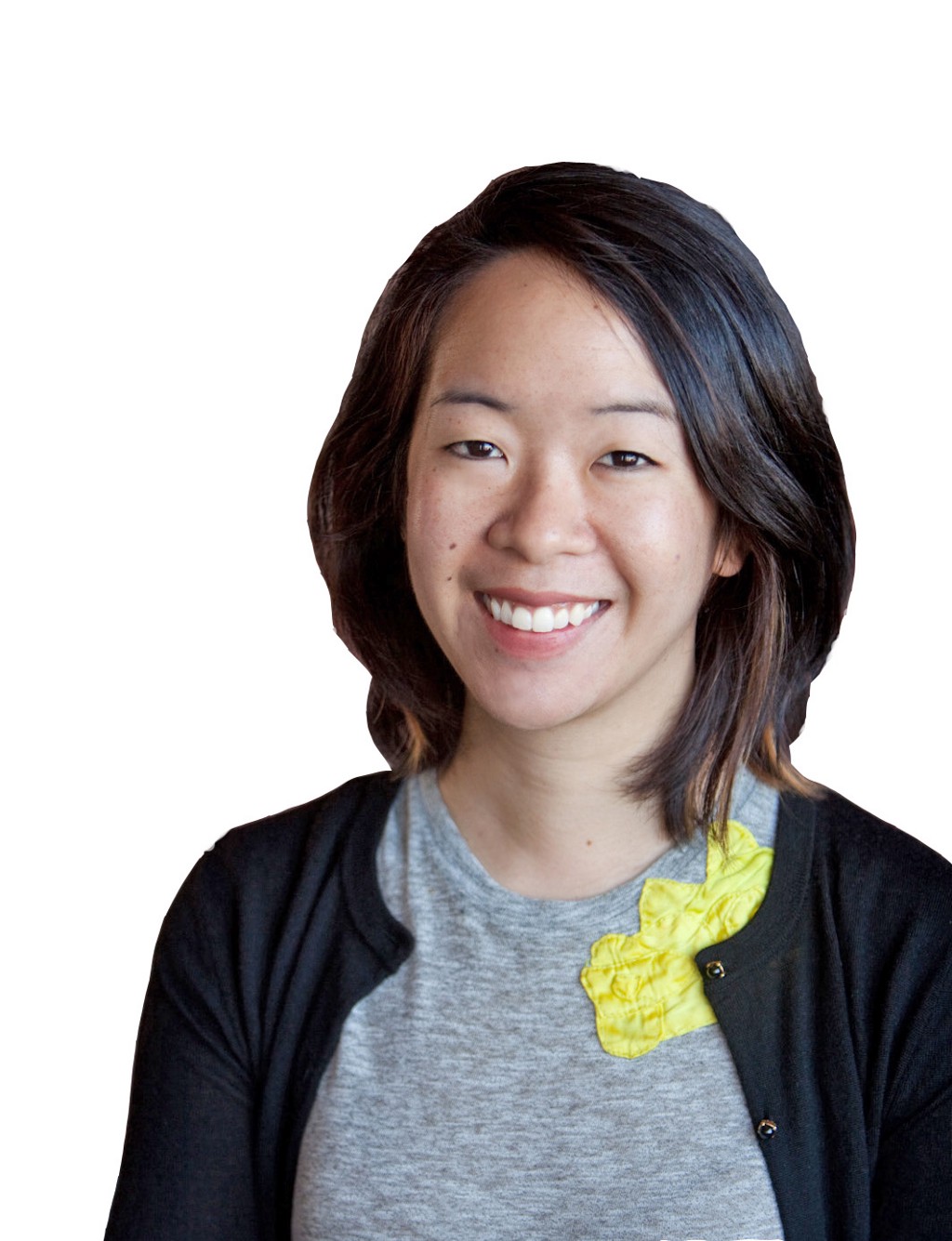
What are you currently working on?
I work at Slate magazine as an assistant social media editor. I also freelance for another publication. I live in Jackson Heights Queen in New York and there is a large Tibetan/Himalayan population and I wanted to do a story about the neighborhood. Right now I am working on a story about Tibetan garments, traditional Himalayan garments, and I know women who are trying to create a more modern version of it.
What is something you appreciated or liked at Lowell?
Journalism at Lowell really simulates the environment of how journalism is in the real world. It teaches you to be quick on your feet and investigate the news angles. What I did in journ at Lowell is a big part of what I do everyday now, like scheduling interviews and deciding the angles of stories.
What were some challenges in journ?
The art of the interview and how important the order of questions is. How important it is to do a ton of research and be prepared. How to write an amazing short news lede. I also remember how some days I wouldn’t have time for homework because I was busy with journ work. There were times that I would be working on journ till midnight.
What are some challenges in your career?
It is hard to find time to do a story; conducting interviews in random places is one of the hardest parts. Time is very limited so you have to be selective about the stories. I always want to pitch ideas, but once I get the assignment I’m thinking, “Oh God, now I have to do the assignment,” and “Is it going to be good enough?” or “Once I write it what if no one wants to publish it?”
Reporter for Forbes Shares Experiences of Interviewing Billionaires
Katia Savchuk: 2003
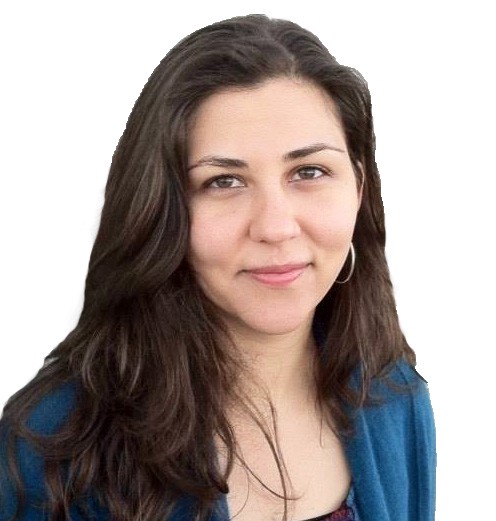
How was your experience in journ at Lowell?
My experience in journ was one of the most valuable, fun and educational experiences I’ve had. It was really fulfilling to work in a team; many of those people became my friends. It was where I really fell in love with journalism and realized I wanted to do this as my career. I’ll never forget writing about urban explorers for The Lowell. This is a community of people who trespass in places like sewers and abandoned mental hospitals for the sake of the thrill and discovering a city’s hidden corners. I connected with one person online, and he wanted to meet near Ocean Beach at night. My mom was nervous, so she followed me in her car!
What made you want to join journ at Lowell?
I did the student newspaper at Presidio. I have always loved writing because it appealed to me. I enjoy interviewing people because I’ve always been insatiably curious. As a journalist, you have license to basically ask anyone anything, as long as you’re researching a story. I love being able to ask people about their lives, their motivations, their challenges. Asking direct questions of people in charge is rewarding because it’s a way of demanding accountability. I also write a lot about billionaires and at first I thought it was weird to talk about their net worth with them, but you get use to it. Some billionaires are humble and approachable; others have huge egos and a need to carefully craft their images. My favorite experience meeting a billionaire was interviewing Mohed Altrad in France. He went from being an ostracized orphan in a nomadic tribe in Syria to being CEO of a global billion-dollar company. And he is one of the kindest people I’ve met.
Journalist For Many Outlets Recalls Time At Lowell
Michelle Konstantinovsky: 2002
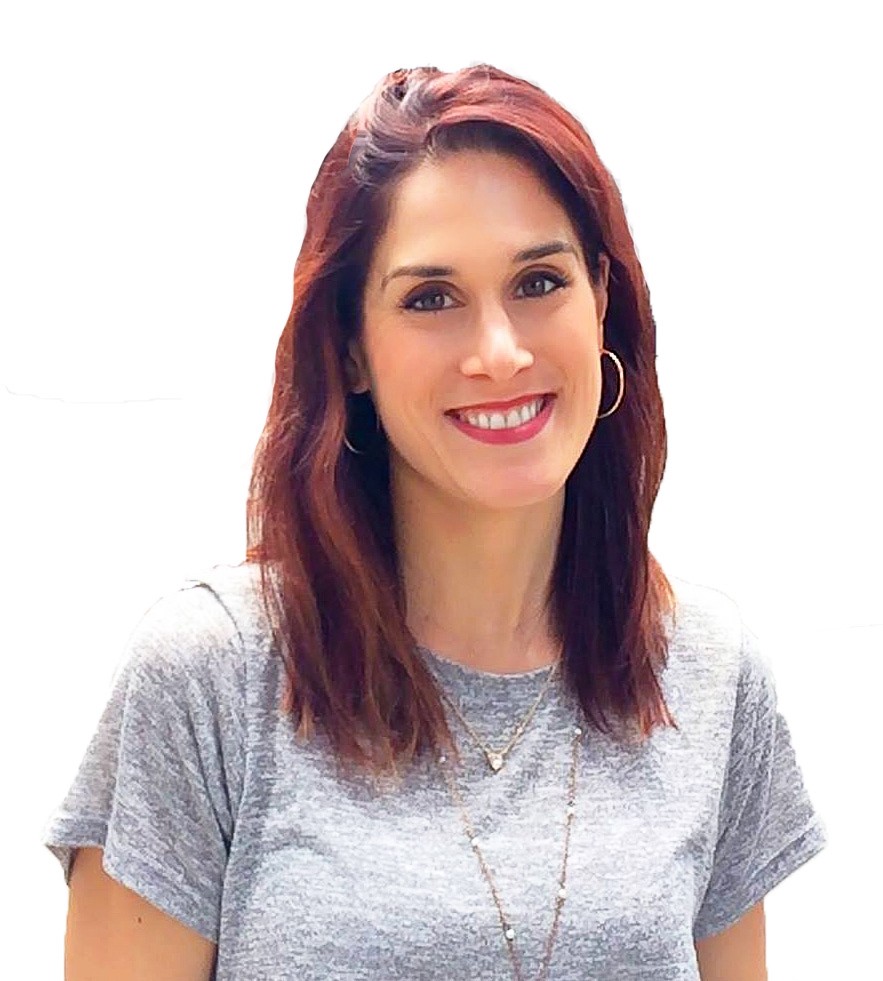
What are you currently working on:
I work full time writing for OneMedicalGroup. It’s like a doctor’s compost of information. I write for their blog so I’ve been doing health writing for a long time and I also do freelancing on the side. I write blogs and online magazines for a bunch of different outlets.
How long were you in journ, was there a story you can remember:
I started journ sophomore year and I was there through senior year. For a while I had my own pop-culture column, which is so funny because it is what I ended up doing later on. I’ve done a lot of pop-culture vlogging now for sites like hellogiggles.
What is something you appreciated or liked at Lowell:
There was the willingness for the advisors to let us explore the areas we were interested; the fact that I was able to write a pop-culture column was really cool. I think that they were really open for students taking the lead. They didn’t really tell us what to do which I think was great and really let us have a lot of creativity. Journalism taught us how to be our own bosses. I was really surprised when I first joined journalism but it was almost completely student run which I think was great. The girls that were the editors when I was coming in were seniors and they seemed so mature to me like adults. I was impressed with that they were able to run this newspaper.
Fulbright Novelist Gained His Writing Skills in Journalism Class
Charlie Beckerman: 2001
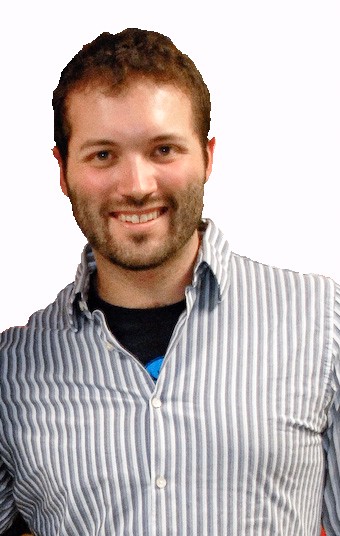
What do you currently do right now?
I’m just starting the beginning of a Fulbright year in the United Kingdom to do research on World War 2 London, specifically looking at the use of tube stations as bomb shelters during the Blitz. It’s all in preparation for a novel project I’m working on.
How was your experience in journ at Lowell?
I found it challenging but also extremely rewarding. I made a ton of friends — most of whom I’m still in touch with a decade-and-a-half later — but I also was getting to try things that I thought of myself as good at already, like writing, and expanding into new skills, like design, editing, even leadership. Was it always sunshine and roses? No, but as far as I can remember, the good definitely outweighed the bad. Maybe best of all was that our advisors all treated us like adults. That’s a powerful experience to have as a teenager.
Any funny moments or events in journ that made your experience special or unique?
I don’t know if this is funny per se, but my senior year was the year after the Enron scandal when California was experiencing “rolling blackouts” where the power would just go off for an hour or two randomly. Back then, we didn’t have very good autosave features on the computers, so as you were working on a story or on a page, you had to remember to save periodically in case the computer froze or we blew the circuit breaker,which happened a lot on late nights. But, it was the middle of the school day and I was on a free mod and I was tinkering with a story in Word, just making lots of little edits here and there, not really worried about saving, but not keeping track of what I’d changed either, and then Lowell got hit with a blackout, and I just remember looking at my reflection in the dark computer screen and going “NOOOOOOOO!”
Did journ at Lowell prepare you or influence your decision in what you do now? How?
I often repeatedly tell people that The Lowell taught me how to write. Sure, I had lots of good English teachers throughout my time in school, but taking journalism at Lowell, learning about editing, about writing and rewriting, that’s where I learned to be a writer. It’s funny because we emphasize reading literature so much in our curriculums, and reading literature is super important, but when I was at Lowell, you only had one semester devoted specifically to writing (and if you were in Honors English, you didn’t have any). With journ, I had three years of intensive writing and editing training, and I learned the only way you can learn any craft — by doing it over and over and over again. That, along with the advisors spending hours and hours of time after school helping us — not to mention our fellow student editors helping us — was the best writing training I could have asked for.
TechCrunch reporter talks about receiving NorCal journalism award
Megan Rose Dickey: 2007
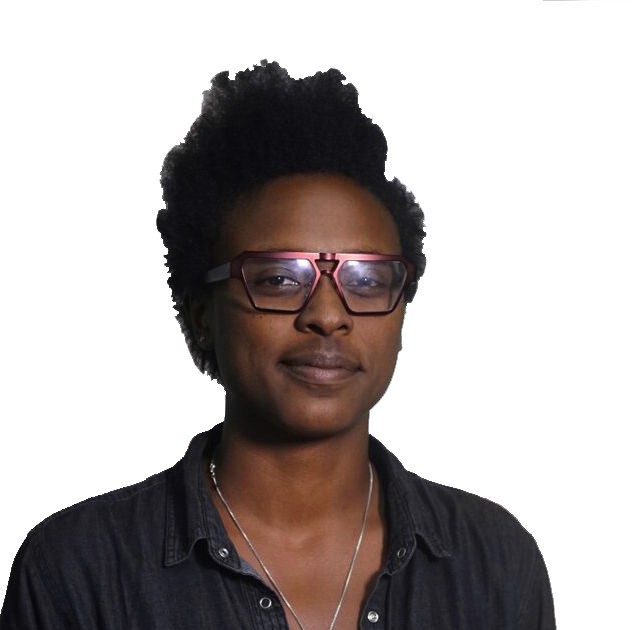
How was your experience in journalism at Lowell?
I believe the class I took sophomore year was writing/journalism. I ended up taking journalism my junior and senior year. I remember ending up winning some award for the James Madison Freedom of Information award. I wrote this story about a student slashing a teacher’s tire and the school administration wanted me to tell who it was and I didn’t. It was an overall good experience, I’m glad I did it.
What are you currently working on?
I am reporting on the pipeline problem in the tech industry and about how it relates to the overall lack of African Americans in the tech industry for TechCrunch. I am also working on a long-term piece about the other pipeline — school-to-prison which disportionately affects African Americans.
What were some things you noticed about journalism in general:
When I decided to major in journalism, a lot of people thought it was a bad idea because the state of journalism wasn’t really clear or well known. At that point, newspapers were losing a lot of money from decreased readership and viewership. Ultimately, journalism as a skillset hasn’t really changed — it’s more just the way that we are all consuming information. When I first started my freshman year in college, I was envisioning doing television news for CNN. But everything was moving toward online media so I ultimately decided that working at an online publication [Dickey now writes for TechCrunch] would be the best route for me.
What are some challenges you have faced in your career?
The main challenges are being original and useful to people. There are a lot of people writing things on the internet, whether they are journalists or not. There are people blogging, using Twitter and Facebook. I would say the challenge is just being able to continue writing things that people want to read and are interested in and get something out of.



